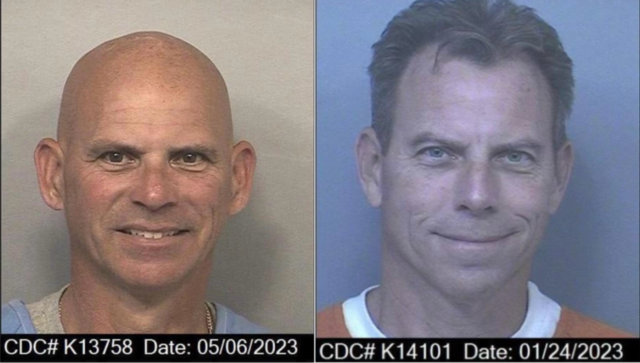
The Case That Captivated a Nation
The case of the Menendez brothers, Erik and Lyle Menendez, captivated the nation in the early 1990s due to its shocking nature and the media frenzy that surrounded the trial. On August 20, 1989, the two brothers fatally shot their parents, José and Kitty Menendez, in their Beverly Hills home. The brutality of the murders, coupled with the wealth and prominence of the Menendez family, fueled a trial that raised complex questions about family dynamics, abuse allegations, and the justice system. This case provides insight into how wealth, privilege, and claims of abuse can impact public perception and legal outcomes.

A Brutal Family Tragedy
The brothers initially claimed they were innocent, but eventually, they admitted to the killings. Their defense was built on claims of long-term sexual, physical, and emotional abuse at the hands of their father, which they argued had led them to fear for their lives. Erik and Lyle alleged that their father was a tyrant who subjected them to years of abuse and that their mother was aware of the situation but did nothing to protect them. These allegations of abuse became the focal point of the defense’s argument, portraying the brothers not as cold-blooded killers but as victims pushed to their limits. This argument led to a divided public, with some sympathizing with the brothers and others viewing the claims as a fabricated excuse to justify the murders.
Allegations of Abuse and Fear
The prosecution, however, argued that the murders were premeditated and motivated by greed. They highlighted the lavish spending spree the brothers went on following the deaths of their parents, including the purchase of expensive cars, watches, and trips. The prosecution contended that the Menendez brothers had killed their parents in order to inherit the family fortune, a theory that resonated with many observers. Additionally, the use of shotguns and the extent of the violence in the crime suggested premeditation to the prosecution, countering the defense’s claims of a spontaneous act fueled by fear.
Evidence of Greed and Premeditation
Ultimately, the trial ended in deadlocked juries on multiple occasions, with the first two trials resulting in mistrials. The case was finally resolved in a third trial in 1996, in which both brothers were convicted of first-degree murder and sentenced to life in prison without the possibility of parole. The life sentences reflected the jury’s conclusion that, while the abuse claims were plausible, they did not justify murder. The final verdict sparked ongoing debate, with some feeling justice was served and others believing the brothers were denied a fair assessment of the abuse they endured.
A Divisive and Enduring Debate
The Menendez brothers’ case remains significant not only for its sensationalism but also for its exploration of complex issues like the cycle of abuse, family trauma, and how wealth can impact legal proceedings. It highlighted the challenges in cases involving abuse claims and questioned the extent to which such claims should mitigate responsibility for violent actions. The Menendez case continues to be analyzed in legal studies and by the public, with debates about whether justice was truly served in their convictions.
![]() <Student Reporter Chloe Moon> chloemoon45@gmail.com
<Student Reporter Chloe Moon> chloemoon45@gmail.com
She is an 10th grade student at South Pasadena High School







